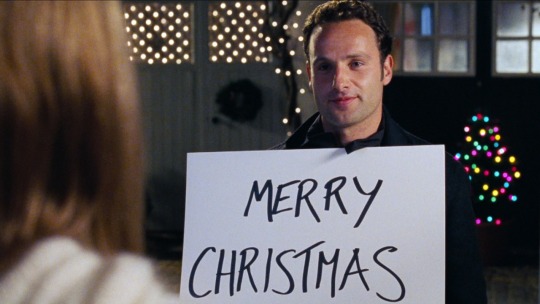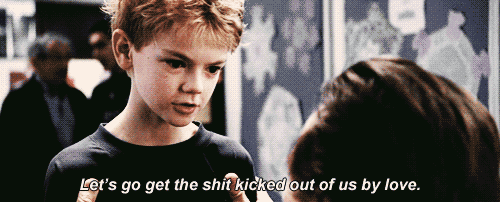The Multi-Storylined, Star-Studded Ensemble, Feel-Good Movie of the Holiday Season Brings Out the Scrooge in Me by Tom Roston
By Yasmina Tawil

Every holiday season, I experience movie-goers PTSD. Im not kidding. My shoulders tense. My breathing quickens. When trailers play, I am struck with anxiety. I have flashbacks. I hear the Pointer Sisters singing and I have visions of a daffy Hugh Grant dancing down the stairs
And then it happens. As inevitable as Jingle Bells playing, yet far more loathsome; the multi-storylined, star-studded ensemble, feel-good movie of the holiday season (MSSSEFGMHS) appears. Theyre virtually interchangeable, like an attack of the clones. They tend to be either love stories or family comedies or both. Either way, Im struck with disappointment. I am baffled by their cloying, plodding return. And then I try to avoid them at all costs.
This began, for me, in 2003. The film: Love, Actually.
Directed by Richard Curtis, best known for writing Four Weddings and a Funeral, Notting Hill, and other British rom-coms. Love, Actually is filled with every clich imaginable. It is insufferably saccharine and seemingly unexpected things that arent at all unexpected happen about every ten minutes.
But Im not writing this piece to tear this one movie down. I don’t want to get too deep into the particular badness of Love, Actually, other than to say that what happens so often is so ludicrous that it plays like farce or a fable. For just one example, Liam Neeson’s character repeatedly talks about how the only girl for him would be model Claudia Schiffer and, toward the end of the film, sure enough, he meets another character, played by Claudia Schiffer!

What’s so flawed about these seeming moments of whimsy or magic or whatever is that the film plays itself as if it is in the real world within the logical rules of the universe. And when it repeatedly diverges from that real world reality, it bursts at the seams. Not only that; theres a central character, played by Bill Nighy, who is an aged, cynical musician who trashes the false sentiments of the holidays as a sort of wink to the audience that the film understands what its doing. And yet the movie drowns in a vat of egg nog of the very same sentiments. The movie is totally schizophrenic.
Which brings me to the point I want to make here. It’s about the identity of a film. Maybe I give them too much credit. But I think of every film as a sovereign being, one that should have that dark night of the soul, the existential moment that we humans have when we ask ourselves, why am I here?
Now, when a Quentin Tarantino or Paul Thomas Anderson or Steven Spielberg movie arrives in theaters, it knows exactly why its there: because its creator wanted to make it. And if a Tom Cruise Mission: Impossible movie comes out during the summer, it also knows why it exists: because Tom wanted it made, to get butts into seats and to make money for Paramount Pictures.
I simplify, of course, but I think you get the point.
Actually, Love, Actually, for all of its flaws, isnt a worthless film. The acting is good, as is some of the writing. Production values are top notch. And it is effective in its ability to pluck heartstrings so well that I couldnt help appreciating it on a more recent viewing. Its putative identity, to be fair, is to tell the story of love. (I can hear violins playing already.) But what bothers me so much is that it fails at its mission. Its not an individual. It is a clone. Or a projection of what it wants to be. Theres no there there.





